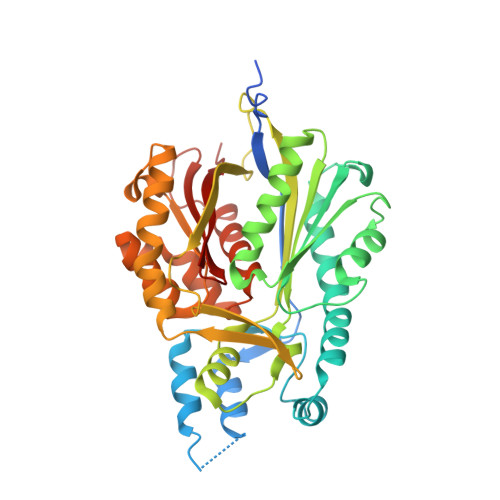A novel tunnel in mycobacterial type III polyketide synthase reveals the structural basis for generating diverse metabolites
Sankaranarayanan, R., Saxena, P., Marathe, U.B., Gokhale, R.S., Shanmugam, V.M., Rukmini, R.(2004) Nat Struct Mol Biol 11: 894-900
- PubMed: 15286723
- DOI: https://doi.org/10.1038/nsmb809
- Primary Citation of Related Structures:
1TED, 1TEE - PubMed Abstract:
The superfamily of plant and bacterial type III polyketide synthases (PKSs) produces diverse metabolites with distinct biological functions. PKS18, a type III PKS from Mycobacterium tuberculosis, displays an unusual broad specificity for aliphatic long-chain acyl-coenzyme A (acyl-CoA) starter units (C(6)-C(20)) to produce tri- and tetraketide pyrones. The crystal structure of PKS18 reveals a 20 A substrate binding tunnel, hitherto unidentified in this superfamily of enzymes. This remarkable tunnel extends from the active site to the surface of the protein and is primarily generated by subtle changes of backbone dihedral angles in the core of the protein. Mutagenic studies combined with structure determination provide molecular insights into the structural elements that contribute to the chain length specificity of the enzyme. This first bacterial type III PKS structure underlines a fascinating example of the way in which subtle changes in protein architecture can generate metabolite diversity in nature.
- Centre for Cellular and Molecular Biology, Uppal Road, Hyderabad 500 007, India. sankar@ccmb.res.in
Organizational Affiliation:
















